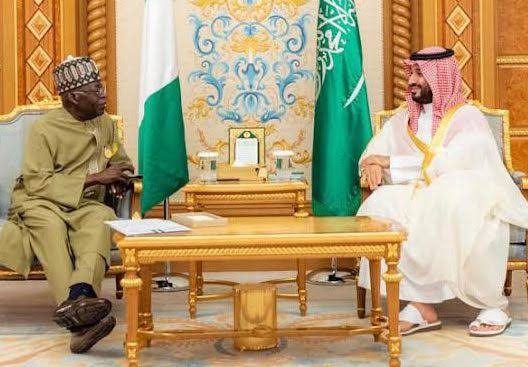There are plans by Saudi Arabia to invest up to $25 billion in Africa by 2030 through its Public Investment Fund.
Saudi Arabia, according to a statement from Energy Capital & Power, is positioning itself as a long-term partner to the continent and leading integrated developments across Africa’s oil and gas value chain.
“Over 50 projects worth more than $500 million were signed between Saudi Arabia and African nations in November 2023, with investments directed primarily to energy, mining and infrastructure sectors. Deals included energy cooperation agreements with Senegal, Chad, Rwanda and Ethiopia, as well as a financing agreement with Mozambique for the construction of public infrastructure,” the statement noted.
Saudi Arabia has also pledged to invest in the revitalization of Nigeria’s oil refineries and provide financial support to strengthen downstream capacity. In January, the two countries launched the National Human Capacity Training Program for the Adoption of Liquefied Petroleum Gas (LPG), which is set to lead to the joint-development of micro-distribution points for LPG through Nigeria’s Edo State.
While Saudi Arabia may be leading diversified investment across Africa, the UAE is not far behind.
Last December, the UAE signed an agreement with Morocco for the development of the Africa-Atlantic gas pipeline, transporting Nigerian gas to North Africa, then on to Europe.
“Through its Abu Dhabi sovereign wealth fund, the country will help mobilize financing for the pipeline, which could also connect emerging gas players like Senegal and Mauritania to new markets. Seeking expansion into Africa’s gas industry, Abu Dhabi National Oil Company is said to be in discussions to acquire Galp’s 10% interest in Mozambique’s Rovuma LNG project, set to monetize three gas reservoirs in the Area 4 block of the Rovuma Basin to produce 18 million tons of LNG per year,” Energy Capital & Power said in a statement.
The UAE’s growing role on the continent also transcends direct investments, enabling African countries to tap into international financial markets. Positioned as a strategic trade center within easy reach of the Middle East, Asia, Europe and Africa, Dubai is well-connected to both global sources of capital and emerging markets that are seeking investment.
Over the past twelve months, the Middle East’s oil and gas heavyweights – Saudi Arabia, the United Arab Emirates (UAE) and Qatar – have accelerated their involvement across Africa’s energy value chain.
Beginning with diplomatic visits turning into tangible cooperation agreements and planned investment campaigns, Gulf countries have cemented their interest in competing for Africa’s untapped hydrocarbon resources, which make up around 13 percent of natural gas reserves and 7 percent of oil reserves globally.
The Invest in African Energy (IAE) 2024 forum – taking place in Paris on May 14-15 will bring together Africa’s top energy projects to pitch to global buyers for partnership and investment. The forum serves as a pivotal platform for Gulf energy companies and developers to access the latest data and project specifications directly from African energy ministers and authorities, with a view to unlocking mutually beneficial partnerships and new energy finance.

